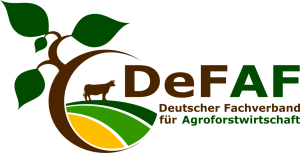More vegetation,
fertile soils
water retention
A growing body of evidence suggests that ongoing forest destruction, soil degradation, sealing of soils, and the associated loss of terrestrial soil water storage are disrupting the movement of water into and through the atmosphere.
This is causing significant shifts in precipitation, resulting in less rainfall and drought in many areas of the world, an increase in regional temperatures, and a worsening of climate change.
At the same time, the natural cooling potential of vegetation caused by evaporation has been largely overlooked in considerations of how to overcome climate change.
In addition, our hydrological infrastructure is optimized to rapidly drain precipitation through sewers and rivers instead of keeping water in the landscape, which further exacerbates the situation.
These changes affect regional climate, but can also affect distant regions through long-distance effects (called teleconnections). Understanding the interwoven relationships and resulting energy fluxes between vegetation, soils, and water on the ground and in and with the atmosphere can help us mitigate climate change while creating resilient ecosystems.
More vegetation, fertile soils and water storage
... strengthen the small water cycles
... make agriculture and forestry more resilient
... promote groundwater recharge and flood protection
... cool the climate
in agriculture
through e.g. undersowing, cover crops, agroforestry,
in animal husbandry
through e.g. holistic grazing management,
in forestry
through e.g. soil building, forest restructuring and changes in timber harvesting methods,
in water management
through e.g. water retention and increased infiltration
means humus build-up, increased water infiltration and storage capacity, more nutrients, increased soil stability,
richer soil life, increased groundwater recharge, increased yield stability, climate positive effects, increased animal health,
more habitat for insects & co and also more cooling, more cloud formation with more precipitation.
In this presentation, Walter Jehne talks about "The Soil Carbon Sponge, Climate Solutions and Healthy Water Cycles"
In this presentation, Stefan Schwarzer explains what "Planting Water - Strengthening Small Water Cycles and Cooling the Climate with (More) Vegetation and (Fertile) Soils" is all about.
This article by Stefan Schwarzer for the United Nations Environment Programme uses many scientific sources to show the important role that vegetation, fertile soils and water retention have on climate and water cycles.
Online-Conference, 18.-19.10.2022
Objective & focus:
Our work aims to show people from the fields of science, practice, politics, media and companies the enormous potentials of ecosystemically oriented crop production and appropriately designed water management on the water balance of land used for agriculture and forestry. At the same time, the associated positive effects with regard to biodiversity, healthy soils and improved climate adaptation are to be considered. Appropriate and feasible solutions that increase the resilience of agriculture, forestry and water management will be presented and discussed.
Key questions & discussion of the meeting:
What do we know about the complex interrelationships of vegetation, soils, water & climate? What land use practices support these natural relationships? How can policy support implementation?
Agenda coming soon
Participants at the conference (amongst others):

Antonio Donato Nobre
Earth Scientist, Ecologist and Agronomist Instituto Nacional de Pesquisas Espaciais, Brasil

Walter Jehne
former CSIRO climate scientist and microbiologist, founder of Healthy Soils Australia

Dr. Lan Wang Erlandsson
Hydrologist Stockholm Resilience Center, Stockholm University, Sweden

Dr. Michal Kravčík
Hydrologist and environmentalist People and Water

Prof. Millán M. Millán
Meteorologist from Spain and Director of the CEAM Foundation

Prof. Dr. Pierre Ibisch
Professor for Nature Conservation University HNE Eberswalde

Dr. Petra Hesslerová
Physical geographer and landscape ecology specialist ENKI, o.p.s., Czech Republic

Dr. Wolfgang Zornbach
Head of Unit "Sustainability and Climate Protection, Climate Impacts" Federal Ministry of Food and Agriculture, Germany

Dr Jan Pokorný

Dr. Ruut van der Ent
Assistant professor in hydrology Delft University of Technology, NL

Dr. Marco Schmidt
TU Berlin

Dr. Christian Hildmann
Head of Department at the Research Institute for Post-Mine Landscapes Finsterwalde, Germany

Prof. Dr. Subimal Ghosh

Judith Schwartz
Journalist, Book-Author “Cows Save the Planet”, “Water In Plain Sight”

T. Vijay Kumar

Dr. David Ellison
Specialist in climate, forests, water Researcher & Consultant at University of Bern (CH) & Swedish University of Agricultural Sciences, Umea

Prof. Dr. Hubert Wiggering
Professor for Geoecology University of Potsdam

Prof. Dr. Sonoko Dorothea Bellingrath-Kimura
Provision of ecosystem services in agricultural systems, ZALF, Germany

Dr. Mathias Herbst
Head of the Center for Agrometeorological Research (ZAMF) of the German Weather Service (DWD)

Emeritus Prof. Sampurno Bruijnzeel
Land use and hydrology, King's College London, UK & Yunnan University, Kunming, PRC

PD Dr. Martin Wiesmeier
Soil scientist Technical University of Munich and Bavarian State Institute for Agriculture

Rob de Laet
Philosopher, regenerator, author of the Marshall Plan to cool the planet

NN
Initiators and Organisation

Stefan Schwarzer, physical geographer, permaculture designer. He has worked for the United Nations Environment Programme (UNEP) in Geneva for over 20 years, dealing with global environmental issues. Linking global interests and goals with local actions, especially in the form of regenerative agriculture inspired by permaculture, is one of his main concerns. He is co-author of the (german) book "The Humus Revolution" and initiator of a symposium and long-lasting webinar series "Regenerative Agriculture". He has been living in the community Schloss Tempelhof since the end of 2012, where he also helps to develop practical regenerative methods of agriculture.
 Dr. Felix Löwenstein, agronomist. After working for several years in the development service, he converted his parents' farm to organic farming in 1992. For many years, he was an active member of Naturland's Executive Committee and was Chairman of the Board of the Federation of the Organic Food Industry (BÖLW) until November 2021, a member of the Board of the Research Institute of Organic Agriculture (FIBL), and a member of the Board of the German Association of Organic Farmers.
Dr. Felix Löwenstein, agronomist. After working for several years in the development service, he converted his parents' farm to organic farming in 1992. For many years, he was an active member of Naturland's Executive Committee and was Chairman of the Board of the Federation of the Organic Food Industry (BÖLW) until November 2021, a member of the Board of the Research Institute of Organic Agriculture (FIBL), and a member of the Board of the German Association of Organic Farmers.
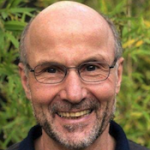 Sepp Braun, Bioland-Association Germany, runs a Bioland farm with dairy cattle, laying hens, arable farming and seed production north of Munich. He converted to organic farming as early as 1986. Sepp Braun has dedicated himself entirely to researching soil fertility and is considered a pioneer in this field. He integrates wild plants into his cropping systems, practices mixed cropping and has established a short rotation agroforestry system. He derives his farming practices from observing plants and soil animals and their requirements. His goal is to intervene little and work in cooperation with nature.
Sepp Braun, Bioland-Association Germany, runs a Bioland farm with dairy cattle, laying hens, arable farming and seed production north of Munich. He converted to organic farming as early as 1986. Sepp Braun has dedicated himself entirely to researching soil fertility and is considered a pioneer in this field. He integrates wild plants into his cropping systems, practices mixed cropping and has established a short rotation agroforestry system. He derives his farming practices from observing plants and soil animals and their requirements. His goal is to intervene little and work in cooperation with nature.
 Dr. Jan-Gisbert Schultze, merchant, co-founder of Acton Capital in Munich, a venture growth fund that invests in digital companies. Through reading Michael Pollan's book "The Omnivore Dilemma", he met regenerative farmer Joel Salatin and his farm Polyface, and subsequently founded the Soil Alliance, a non-profit organization that aims to raise awareness for regenerative agriculture. With the Regenerate Forum, he advocates for a regenerative economy.
Dr. Jan-Gisbert Schultze, merchant, co-founder of Acton Capital in Munich, a venture growth fund that invests in digital companies. Through reading Michael Pollan's book "The Omnivore Dilemma", he met regenerative farmer Joel Salatin and his farm Polyface, and subsequently founded the Soil Alliance, a non-profit organization that aims to raise awareness for regenerative agriculture. With the Regenerate Forum, he advocates for a regenerative economy.
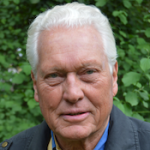 Dr. Heiko Diestel, Professor of Water Resources and Crop Science, TU Berlin (emer.), initially active in irrigation in Europe, then worked in Iran for the Food and Agriculture Organization of the UN. Subsequently, soil science was a focus of his work at the TU Braunschweig. In 1988 he took over the professorship for water balance and cultural technology at the TU Berlin. He has been involved in soil science, cultural engineering and water management projects in Africa, Asia and Latin America, most recently at www.aqua-eco-mundi.de in South Korea. He is involved in environmental education.
Dr. Heiko Diestel, Professor of Water Resources and Crop Science, TU Berlin (emer.), initially active in irrigation in Europe, then worked in Iran for the Food and Agriculture Organization of the UN. Subsequently, soil science was a focus of his work at the TU Braunschweig. In 1988 he took over the professorship for water balance and cultural technology at the TU Berlin. He has been involved in soil science, cultural engineering and water management projects in Africa, Asia and Latin America, most recently at www.aqua-eco-mundi.de in South Korea. He is involved in environmental education.
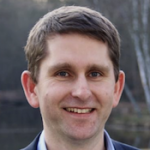 Dr. Christian Böhm, Chairman of the German Association for Agroforestry, forest scientist in the Department of Soil Conservation and Recultivation at the Brandenburg University of Technology Cottbus-Senftenberg. There he conducts research on the establishment and implementation of agroforestry systems in Germany in close cooperation with practitioners. The focus is on the effects of agroforestry on aspects such as climate resilience, climate, soil and water protection, but also on studies of economic and legal framework conditions. As chairman of the German Association for Agroforestry (DeFAF), he is also strongly committed to the inter- and transdisciplinary networking of different stakeholders with regard to agroforestry.
Dr. Christian Böhm, Chairman of the German Association for Agroforestry, forest scientist in the Department of Soil Conservation and Recultivation at the Brandenburg University of Technology Cottbus-Senftenberg. There he conducts research on the establishment and implementation of agroforestry systems in Germany in close cooperation with practitioners. The focus is on the effects of agroforestry on aspects such as climate resilience, climate, soil and water protection, but also on studies of economic and legal framework conditions. As chairman of the German Association for Agroforestry (DeFAF), he is also strongly committed to the inter- and transdisciplinary networking of different stakeholders with regard to agroforestry.
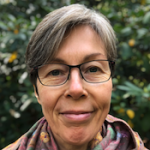 Marion Senger, Chamber of Agriculture of Lower Saxony, soil specialist of the Chamber of Agriculture, chairwoman of the soil specialists of the federal states (advisory body of the BMEL), working group leader of the Society for conservation tillage (GkB e.V.), member of the Federal Soil Association (BVB e. V.). Consulting activities in the field of soil, soil cultivation and soil protection. Study of agricultural sciences (plant cultivation, soil science).
Marion Senger, Chamber of Agriculture of Lower Saxony, soil specialist of the Chamber of Agriculture, chairwoman of the soil specialists of the federal states (advisory body of the BMEL), working group leader of the Society for conservation tillage (GkB e.V.), member of the Federal Soil Association (BVB e. V.). Consulting activities in the field of soil, soil cultivation and soil protection. Study of agricultural sciences (plant cultivation, soil science).
 Dr. Stefan Klotz, Helmholtz Centre for Environmental Research (UFZ), ecologist, heads the UFZ thematic area Ecosystems of the Future as well as the department "Biocenosis Research" at the Helmholtz Centre for Environmental Research GmbH located in Halle. His research focuses on plant ecology, biological invasions and biogeography. He is particularly interested in the effects of land use and climate change on biodiversity in general and specifically on ecosystem dynamics.
Dr. Stefan Klotz, Helmholtz Centre for Environmental Research (UFZ), ecologist, heads the UFZ thematic area Ecosystems of the Future as well as the department "Biocenosis Research" at the Helmholtz Centre for Environmental Research GmbH located in Halle. His research focuses on plant ecology, biological invasions and biogeography. He is particularly interested in the effects of land use and climate change on biodiversity in general and specifically on ecosystem dynamics.
 Dr. Sassa Franke, Political scientist, founder and managing director of Klimapraxis. The goal of the non-profit organisation is to promote regenerative agriculture and thus bring climate protection into practice. This is done with project development, cooperation and project management, accompanying research and communication. Current projects are "Mob Grazing in arable forage production" and the establishment of a "Network evaporative cooling and water retention with agroforestry and keyline design". Both are concerned with climate change adaptation strategies in Brandenburg, for the development of which stakeholders from agriculture, nature conservation and environmental protection, science and politics are brought together.
Dr. Sassa Franke, Political scientist, founder and managing director of Klimapraxis. The goal of the non-profit organisation is to promote regenerative agriculture and thus bring climate protection into practice. This is done with project development, cooperation and project management, accompanying research and communication. Current projects are "Mob Grazing in arable forage production" and the establishment of a "Network evaporative cooling and water retention with agroforestry and keyline design". Both are concerned with climate change adaptation strategies in Brandenburg, for the development of which stakeholders from agriculture, nature conservation and environmental protection, science and politics are brought together.

